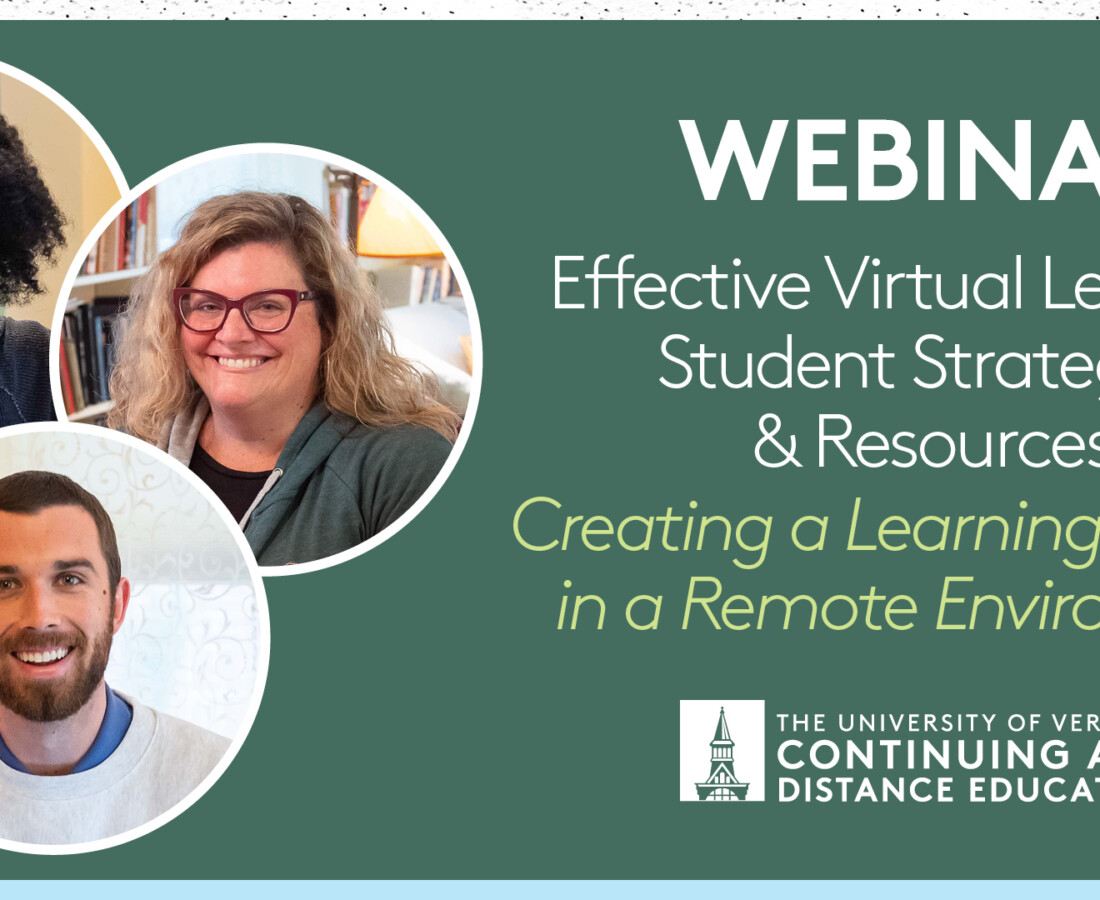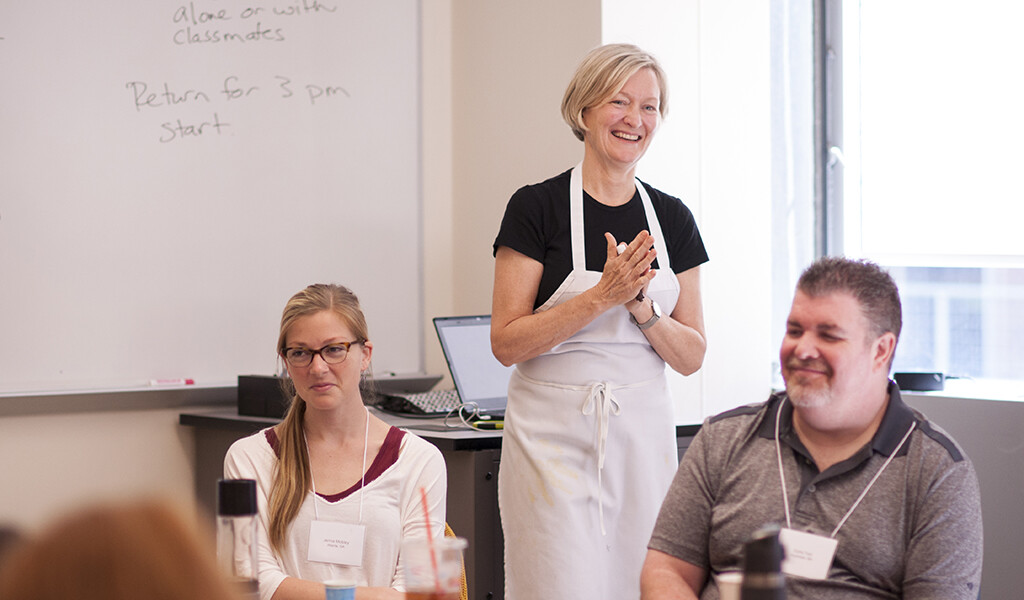Staying focused while adjusting to remote learning amidst the rigors of college academics during a global pandemic: what could be easier?
The University of Vermont Professional and Continuing Education recently hosted three free, informational webinars on Effective Virtual Learning: Student Strategies and Resources to examine how students can make the most of the many challenges they may be facing as remote college students this fall.
How to Learn Effectively in a Remote Setting
In part two, Creating a Learning Mindset in a Remote Learning Environment, panelists Sarah Ringler, M.S., Instructor for Academic Success Strategies, Health Professions Advisor for the Masters of Medical Science at the University of Vermont Larner College of Medicine, Carolyn Siccama, Ed.D., Instructional Designer for the Department of Professional and Continuing Education, and Julia Walberg, M.S., CCC-SLP, Clinical Educator and Lecturer for the Eleanor M. Luse Center for Communication, shared tips and strategies to create a learning mindset for success in remote and online classes.
Making It Stick
“I ask my students straight up, how do you study for an exam?” Ringler said. “And a lot of times I get: On Sunday night, I spent five hours studying. And in that moment, in those five hours, you got it, right? You have the information down, you understand it, you know it. But then you wake up in the morning and you go to class and all of a sudden it’s like, oh! I have no idea what I studied!”
Addressing how we learn and strategies for college success that go beyond all-nighters and copious amounts of coffee, Ringler highly recommends Make it Stick, which examines commonly used but counterproductive learning methodologies and introduces study habits that are more conducive to remembering and understanding what you’ve learned, such as:
- Active retrieval – Recalling concepts/information form memory without having anything in front of you as a crutch. Examples: flashcards, Quizlet, teaching someone else what you’ve learned.
- Spaced repetition – Repeating what you are trying to retain and learn over a period of time (not cramming), allowing information to go into long-term memory.
- Interleaved learning – Another type of spaced learning, interleaving involves students jumping from subject to subject (as opposed to block learning). Among other benefits, studies have shown that interleaving helps students retain information and acquire new skills.
“When you space out your learning, you have a better sense of what you don’t know,” Ringler said. “And so this act of forgetting, which we kind of talk about as desirable difficulty, and the process when learning is tough, that is when our brain is actually in the learning process.”
Adjusting to Learning Online
Providing flexibility, convenience, and the same academic rigor as in-person classes, UVM has provided a number of blogs on how to be a successful online student here and here (and here and here…), as remote/online learning can present unique challenges by way of time management and self-motivation.
“Especially for an online course, we don’t have to be in a class or anywhere at any certain time,” Siccama said. “So what students tell us is they actually take their personal calendar, whether it’s paper or electronic, and they will actually put in every due date for that semester and every assignment for that semester—even blocking off specific hours of time to check into your course.”
Walberg echoed the approach of breaking the work into manageable components.
“I like to provide students with a checklist that goes with their assignments,” Walberg said. “So they can break it up into little pieces and can do maybe one chunk on a Monday night and then move onto another chunk another time so it’s manageable. They have all these little pieces and it feels good.”
Although approaches may differ, Siccama presented some general guidelines to help students navigate their online learning experience.
- Participate in your online class 5 -7 days per week
- Check your email
- Work with others in completing projects
- Use the technology properly
- Meet the minimum standards as set forth by the institution
- Complete assignments on time
- Enjoy communicating in writing
Adopt a Growth Mindset for Effective Learning
Most importantly (especially at this time), Ringler encourages students to harness the power of positive thinking and adopt a growth mindset.
“With a fixed mindset, we believe that intelligence is fixed at birth,” Ringler said. “We all do it—we say, I’m never going to be good at math. I’m not good in science. I’m not a good test-taker. When you have a growth mindset, you really believe that your intellectual ability is in your own hands. You have control and you have capacity for improvement—and so I like to point out that our mindset is fluid. We can be at all ends of the spectrum. If you’re finding that you’re in a fixed mindset, really question why. I think sometimes when things becomes challenging or tough we tend to narrow our focus and narrow our mindset. But remember, learning is done when things get difficult.”
View the webinar to learn more about how environment plays a role in our learning and to gain additional study tips and strategies. Also look for part 3 of our series on Holistic Approaches to Learning Amidst Uncertainty.
Watch part 1 of our series on Virtual Learning, Time Management.




